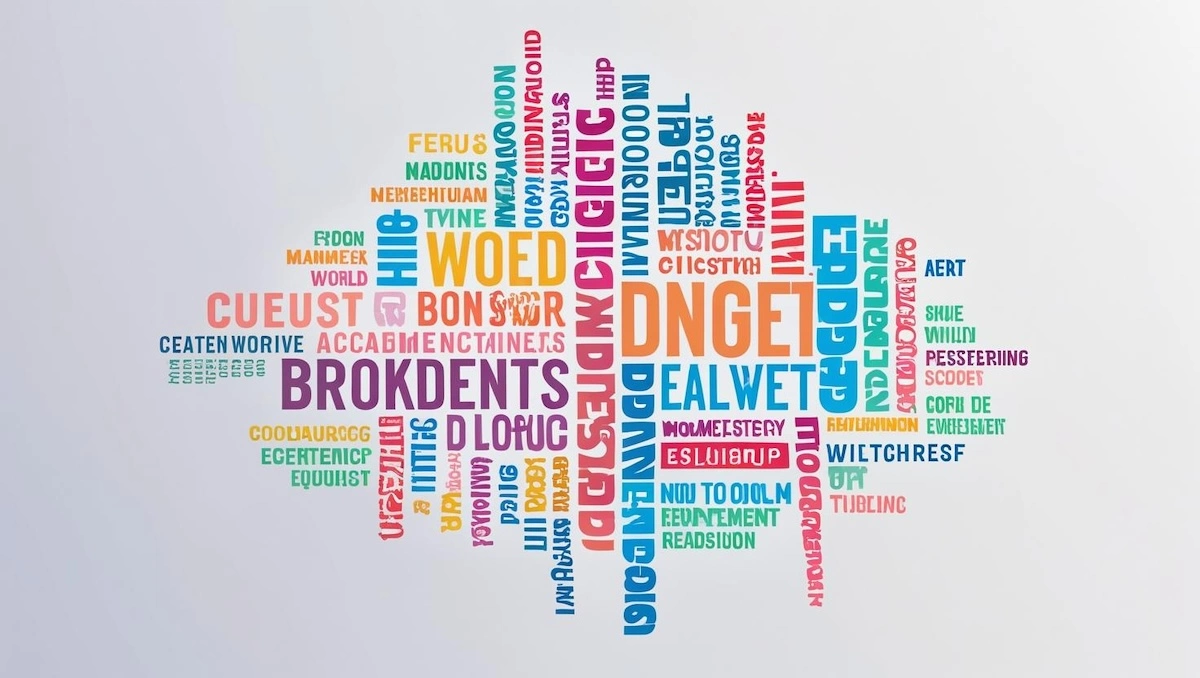The Academic Word List (AWL) is a comprehensive collection of 570 word families, carefully selected to represent the most frequently used vocabulary in academic texts. Created by Averil Coxhead at Victoria University of Wellington, New Zealand, the list is specifically designed to help students and professionals who are preparing for tertiary education or academic work. The AWL excludes words that are part of the General Service List (the most frequent 2000 words in English), which means it’s tailored to the academic context, making it an essential tool for enhancing your academic English.
The AWL is divided into 10 groups, with each group ordered by frequency, starting with the most commonly used words. Whether you are preparing for a university exam, researching academic texts, or simply looking to improve your academic writing, mastering the AWL is a great step toward achieving proficiency in academic English.
What is the Academic Word List (AWL)?
The Academic Word List (AWL) was developed to support learners in enhancing their academic English vocabulary. It includes 570 word families that appear frequently in a wide range of academic texts across various disciplines. The list is organized into 10 groups, with Group 1 containing the most commonly used words, and Group 10 consisting of the least frequent but still valuable academic terms.
Why is the Academic Word List Important?
The AWL is essential for anyone looking to improve their academic reading and writing skills. Here’s why:
- Comprehensive Vocabulary: The AWL focuses on the words most used in academic writing, providing a solid foundation for academic success.
- Tailored for Tertiary Education: The words in the AWL are specifically selected for their relevance to university-level academic work.
- Improved Reading and Writing: A strong command of the AWL will significantly enhance your ability to understand academic texts and express your ideas clearly in written assignments.
Understanding the Structure of the AWL
The AWL is divided into 10 groups based on frequency. Below are examples of words from each group:
Group 1
- sector, available, financial, process, individual
- specific, principle, estimate, method, research
Group 2
- community, construction, strategies, previous, conclusion
- security, features, consumer, achieve, evaluation
Group 3
- comments, convention, framework, negative, dominant
- outcomes, shift, ensure, justification, funds
Group 4
- overall, regime, implementation, project, goals
- integration, mechanism, job, parameters, communication
Group 5
- alter, stability, awareness, enforcement, draft
- energy, marginal, capacity, generation, welfare
Group 6
- intelligence, transformation, utility, motivation, bond
- recovery, incorporated, instructions, estate, cooperative
Group 7
- intervention, confirmed, classical, chemical, voluntary
- release, visible, paradigm, ultimately, transmission
Group 8
- highlighted, inspection, termination, displacement, arbitrary
- reinforced, exploitation, detected, random, revision
Group 9
- bulk, unified, erosion, vision, mutual
- norms, manual, supplementary, concurrent, ethical
Group 10
- whereby, inclination, encountered, convinced, assembly
- enormous, reluctant, persistent, straightforward, integrity
How to Practice with the Academic Word List
To improve your vocabulary, you can practice with AWL word groups in the following ways:
- Use Practice Tests: Practice tests help reinforce learning and allow you to test your vocabulary comprehension.
- Incorporate Words in Writing: Try using new words in your academic essays or reports to practice them in context.
- Flashcards: Create flashcards for each word and its meaning to reinforce your memory.
- Reading Academic Texts: Incorporate AWL words into your reading practice by looking for them in academic journals, textbooks, or articles.
Benefits of Mastering the AWL
Mastering the Academic Word List offers several advantages:
- Enhanced Academic Performance: A strong grasp of AWL vocabulary helps improve your writing and reading comprehension, making you better prepared for academic assignments and exams.
- Effective Communication: Whether writing a research paper or participating in academic discussions, knowing the AWL vocabulary will help you communicate more effectively and confidently.
- Long-term Benefits: Since the AWL words are relevant across various academic disciplines, mastering them provides lifelong benefits for professional development, especially in academia and research fields.
Conclusion
The Academic Word List (AWL) is an invaluable resource for improving your academic English vocabulary. By mastering the 570 word families in the AWL, you can enhance your reading comprehension, writing fluency, and overall academic performance. Practice regularly using AWL practice tests to ensure that you are familiar with these important words and ready to apply them in your academic work.
By using resources like the AWL, you’re setting yourself up for success in academic and professional environments. Whether you’re preparing for university studies, research, or professional exams, the AWL will help you communicate more effectively and with confidence.




